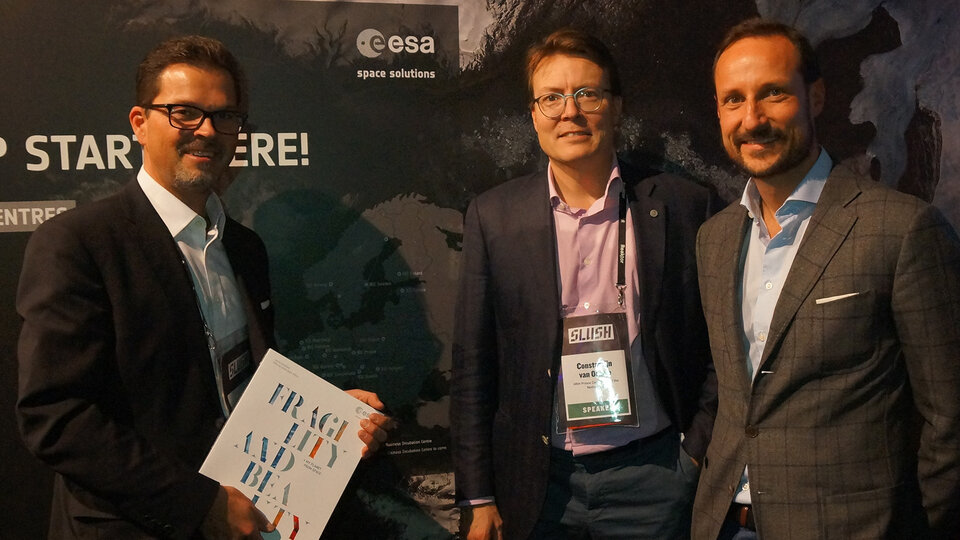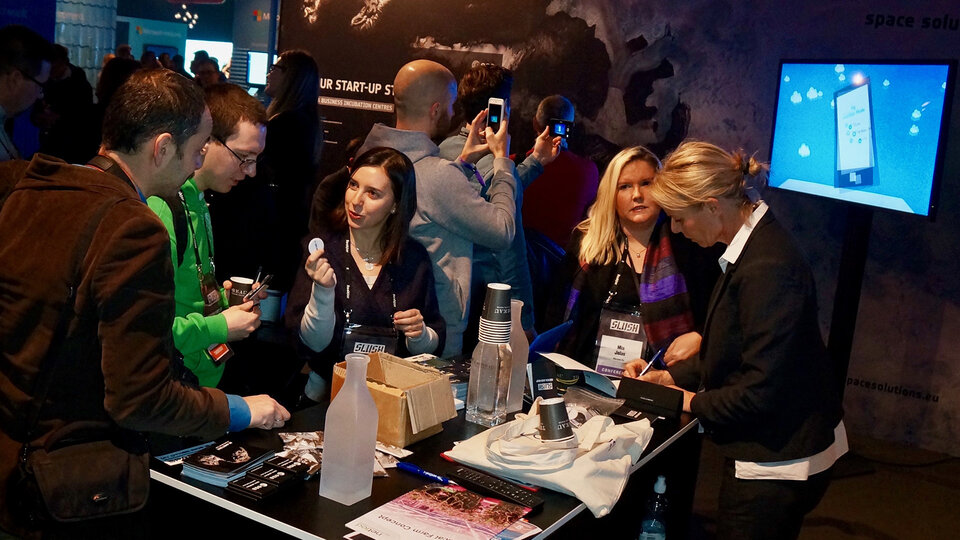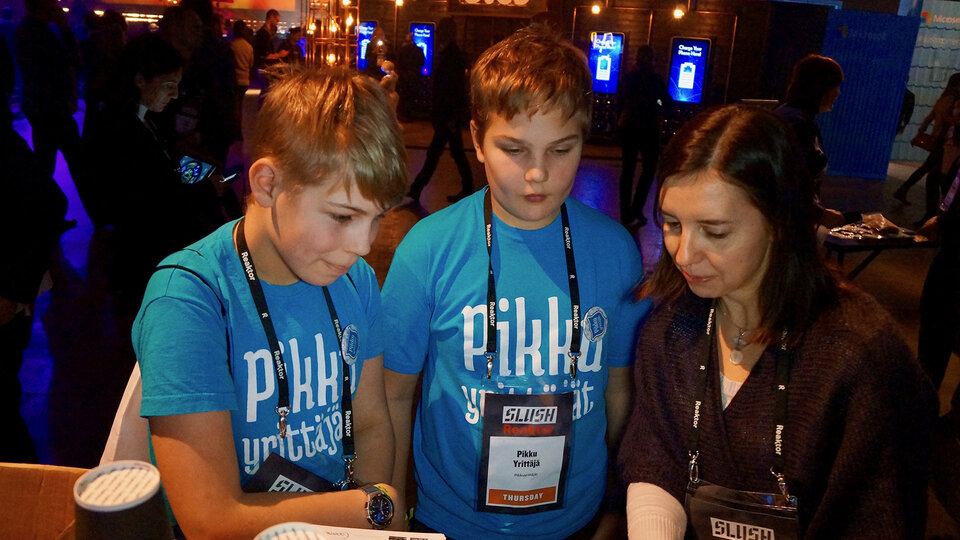Nordic entrepreneurial spirit boosted by space
More than 17 000 people converged on Helsinki in Finland this week to create businesses – and ESA was there to add its space expertise.
The ‘Slush’ event helps the next generation of companies by promoting a worldwide start-up community.
“Having already fostered more than 430 new companies at our 16 business incubators in 13 countries to recycle space technology and satellite data to everyday use down here on Earth,we can support entrepreneurs to turn their ideas into successful new European companies,” noted ESA’s Frank Salzgeber at the event.
One stage was dedicated to pitches by young entrepreneurs, while others were filled with tech experts sharing their stories and sparking discussions on the future.

Norway’s Crown Prince Haakon added,“It was really interesting to learn about ESA and the fascinating and innovative ways how space technology and data acquired from space can benefit us.”
On the Nordic scene, more governmental and regional support translates to more bio-economic, climate and environmental opportunities. Add recent space technology advances and it’s no wonder that the Arctic region is abuzz with entrepreneurial uplift.
Europe’s Galileo satnav constellation is sharpening the global system and Earth imagery is flowing down to users thanks to Europe’s Copernicus satellites.

Clearer imagery, faster data transfer and pinpoint accuracy offer huge business potential in remote regions. Think of future Arctic shipping and offshore operations, and monitoring climate and environmental threats.
Monitoring the cruise ships heading north is already a challenge. Icebergs still pose a danger up there, where rapid help would be needed in the event of accidents – and satellites can cover the vast Arctic waters.
Finland plans to open its own ESA Business Incubation Centre next year. In addition to boosting the local economy, it will support start-up companies to use space technologies and space data to create new tools and systems.

“We want to tap into the wealth of technology research and development done under ESA space programmes to foster new business and jobs in Finland,” said Petri Peltonen, Under-Secretary of State at the Ministry of Economic Affairs and Employment of Finland.
“The incubation initiative ESA has launched through its incubators has shown a great potential and already led to many new companies in Europe. We want to join this process.
“The centre will enable us to offer future-oriented space technologies to Finnish entrepreneurs as well as a sound platform for high-tech start-ups.
“We also want to support start-ups who use leading-edge technology and data to create smart solutions for and from space.”

“Start-ups and entrepreneurs come with their great ideas,” added Frank Salzgeber. “We support them with technical and business advice, from ESA specialists and from our national partners, to grow their ideas and turn them into viable new companies in Europe.
“Our business incubation has proven to be a great success: a vast majority of companies are today thriving, creating revenue, stimulating the local economy, and some have even been taken over by multinationals.”
Most Nordic countries will have ESA incubators within a year: the Swedish centre opened in 2015, while Norway and Finland will open theirs next year.






